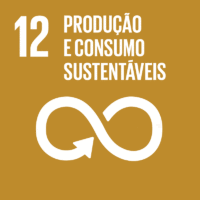Ciência_Iscte
Publicações
Descrição Detalhada da Publicação
Proceedings of the European Conference on Knowledge Management, ECKM 2019
Ano (publicação definitiva)
2019
Língua
Inglês
País
Portugal
Mais Informação
Web of Science®
Scopus
Google Scholar
Esta publicação não está indexada no Overton
Abstract/Resumo
The aim of this paper is to study how distinct generations of knowledge and technology are used for implementing innovative and sustainable production and commercialization practices in the food system. Transition towards sustainability encompasses structural changes in technological, organizational and social domains. In the case of the food systems, notably agriculture, the shift is from a 'productivist' to a 'post-productivist' paradigm. This change takes place via the scaling up of experimental and isolated cases (niches), through the creation of organic farms and the transformation of conventional ones. The post-productivist mode of agricultural production relies on principles such as high quality products, certified practices, environmental conservation, local embeddedness and alternative forms of commercialization. Conversely, economic efficiency prevails in the dominant 'productivist' mode. On the one hand, new technologies, namely in information and communication, play an important role in the shift to sustainable businesses in the food system. The Internet has become extensively used in the commercialization processes, while biotechnology advances (developed in universities, and public and privately owned laboratories) are increasingly incorporated in farming. On the other hand, traditional sources of innovation consist of the re-usage and adaptation of 'old' knowledge, practices and techniques. Local production and short supply chains, which allow the creation of innovative businesses, are examples of this phenomenon. These cases exemplify how traditional activities can absorb/generate innovation, at technological and organizational levels, and adapt to the new knowledge-based era. The research presented in the paper has been conducted in a project on Spatial Planning for Change (SPLACH). The analysis focus on the food system transition in a specific territory, the Lisbon Metropolitan Area. The paper addresses the combination of different technologies in organic food production initiatives in the Lisbon Metropolitan Area (LMA). Primary data were collected through in-depth interviews with key actors, namely entrepreneurs or leaders of the initiatives.
Agradecimentos/Acknowledgements
--
Palavras-chave
Commercialization practices,Food system transition,Knowledge management,Low technology sectors,Organic farms,Technological innovation
Classificação Fields of Science and Technology
- Economia e Gestão - Ciências Sociais
Registos de financiamentos
| Referência de financiamento | Entidade Financiadora |
|---|---|
| POCI-01-0145-FEDER-016431 | Fundação para a Ciência e a Tecnologia |
Contribuições para os Objetivos do Desenvolvimento Sustentável das Nações Unidas
Com o objetivo de aumentar a investigação direcionada para o cumprimento dos Objetivos do Desenvolvimento Sustentável para 2030 das Nações Unidas, é disponibilizada no Ciência_Iscte a possibilidade de associação, quando aplicável, dos artigos científicos aos Objetivos do Desenvolvimento Sustentável. Estes são os Objetivos do Desenvolvimento Sustentável identificados pelo(s) autor(es) para esta publicação. Para uma informação detalhada dos Objetivos do Desenvolvimento Sustentável, clique aqui.

 English
English


